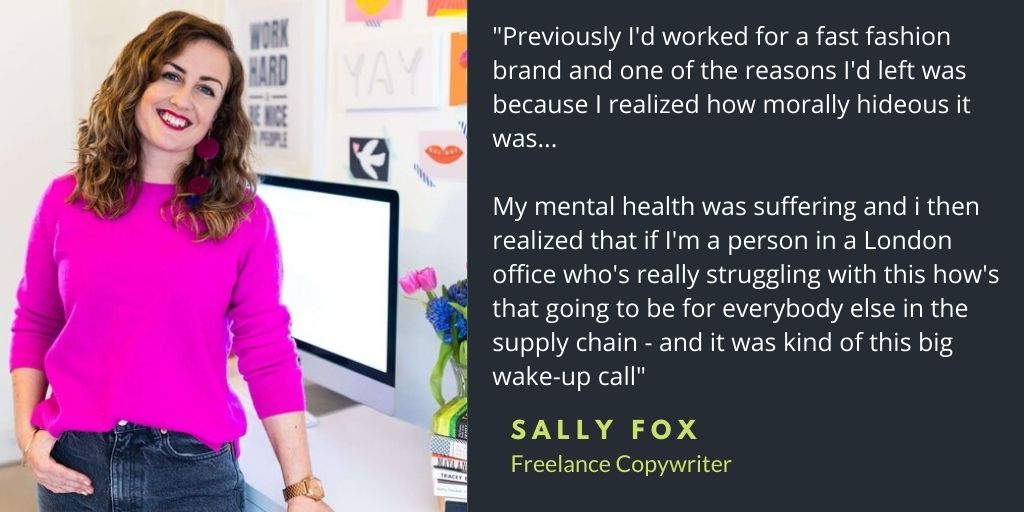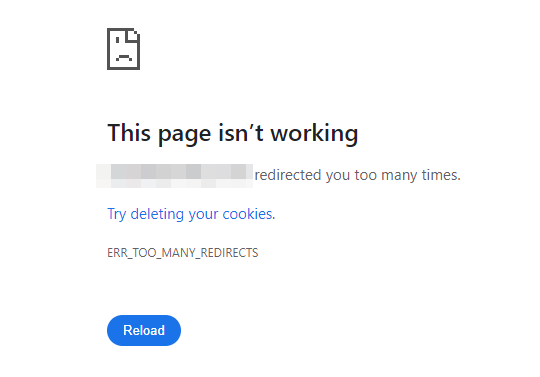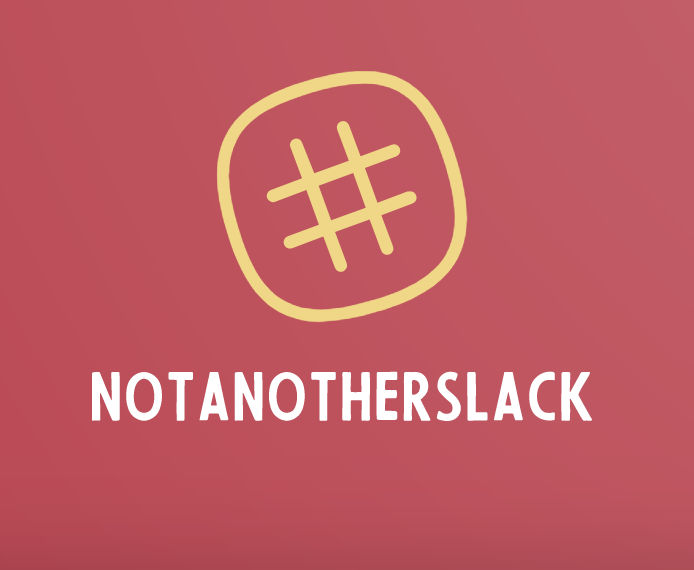I'm really excited to finally be launching my new "Ethical Marketer" series with the help of Sally Fox, a copywriter from the UK that now operates under the Lumen and Fox brand, and who like me is also based out in Spain.
I first became aware of Sally via the DMU, and her being based not only in Spain but also in Galicia (kind of the county equivalent) I was always keen to keep in contact with her.
When I first had the idea to do a series that interviews other people who work in a similar field as myself (digital marketing, in some form or another) with similar interests as myself, Sally was one of the first people that came to mind.
Since following her on Twitter I've learned a lot about some of the topics she's passionate about - whether it's the fast fashion industry, or issues around climate change and sustainability.
In this month's newsletter, we chat about
— Sally Fox · Copywriter (@sallymfoxwrites) November 26, 2021
🙊How to have an internet argument
😥Ways to manage post-COP26 worries
♻️Steps to make your biz Green Claims Code proof
Join us:https://t.co/YeDc0e30nK
She also runs a great little newsletter called The Right Place, where she covers more of those topics.
A lot of the things she's been speaking about also seemed to align with my own interests, so I thought who better to ask to contribute to this series. There were a lot of things I wanted to ask her, not only about life in Galicia, but also more generally about her pivot towards working with sustainable brands, or those who work to "do good" - something I've been slowly trying to do myself.
Hopefully you enjoy reading along, and if you have other questions to contribute feel free to leave a comment below the article - I'm sure Sally would be happy to help.
Interview with Sally Fox
Matt: For people just starting out with their career as a copywriter, or in any similar field, is it feasible to look to target ethical or green companies to work with? Or could it be seen as more of a luxury to be in the position that you can now hone in on those businesses?
Sally: I’d say it’s certainly feasible to market yourself as an ethical or green copywriter from the beginning. Having a niche is a good way to stand out to potential clients in the early days while you build up your network and reputation.
In my experience, marketing myself as ethical and sustainable hasn’t impacted the number or nature of clients that get in touch. The luxury part is getting to pick and choose which clients you work with out of the ones that contact you.
Most of us, when we’re just starting out, rightly or wrongly, say yes to every job that comes in. Maybe by marketing yourself as green or ethical from the start you get to exercise a bit of control over who gets in touch.
Matt: Do you ever struggle deciding whether a company that approaches you is indeed worthy of your time - whether they are actually as green as they claim? Are there any hard and fast rules about qualifying them?
Sally: No hard and fast rules, as long as the business or project is looking to do good then I’m happy to get behind them. Unless there was obvious greenwashing going on, I accept what they tell me.
While I would never write copy for a business that was clearly seeking to mislead people, it’s not for me to vet their credentials and claims.
Matt: Have you always worked with ethical firms or was that a transition at some point in your career? If so - what pushed you in that direction?
Sally: I have always worked with ethical brands but I haven’t always marketed my services that way. One of my very first paying clients was an ethical fashion marketplace.
I landed the job because of my background in the fashion industry and some articles I’d written for a sustainably-minded publication. Back then I guess about 50% of my clients were in the sustainable and ethical space.
Naturally, when you have experience in a sector, it’s easier to book other jobs in that niche. About a year later I updated my marketing and from there it really started to snowball. Now, the vast majority of my work falls into that category.

Matt: Are there any particular causes that you feel very strongly about? Have you been able to find any businesses that are in those fields, to work with professionally?
Sally: The causes that matter most to me are those that affect women. Of course climate change is set to impact women far more than men, so technically every job I do in that sector is the step in the right direction.
I’ve also been fortunate enough to work with a couple of women’s organisations in the UK with causes very close to my heart.
Matt: Do you find it hard to get clients that fall into that category? Are there any particular strategies that work well for you?
Sally: For me, social media has been a huge help. It allowed me to meet and talk to the right people and become known for what I do by talking about it all the time. (And probably boring people to tears in the process!)
Matt: Would you say it feels more rewarding to work with these types of clients, or does it still feel like work at the end of the day?
Sally: It’s so much more rewarding. When I look at my schedule on a Monday where I’m feeling sluggish and see I have that client booked in, it’s a real boost.
Matt: Do you ever consider your own impact on things like CO2 emissions when you're working from a computer and using the Internet, like many other remote workers? Admittedly it can’t be as big as many other companies out there!
Sally: I do, indeed. It’s important to me to experience running a sustainable business and talking about it so that I’m in a better position to support and advise my clients.
I’m currently taking small, imperfect steps towards improving certain aspects of my business like reducing my e-footprint, understanding more about my carbon footprint and generally considering the impact I’m having on the environment and society.
I already have a social and environmental policy and I’m hoping to expand on that and do a lot more in 2022.

Matt: For any freelance service providers reading along, any advice on transitioning to work with more ethical businesses? Is it something they should consider, or does it really need to be an action that comes from within themselves?
Sally: A good place to start is to write down your values. What do you care about? What are you not willing to do, no matter the cost? When you have it in writing, it’s easier to turn down the clients that don’t light you up and look for opportunities to get in front of the clients that do.
In terms of finding clients, my advice would be to talk about the causes you care about. Write about them. Offer to work pro bono for organisations that truly can’t afford service like yours in the sectors that matter to you.
Matt: Do you struggle to get the “eco-credentials” out of a business, when you’re dealing with them? For example, maybe they don’t exactly know about their supply chain, or CO2 emissions. Is it sometimes tricky to prise this information out of them, in order to work on their copy?
Sally: Most businesses come to me because they’re ready to shout about their credentials. My job is to guide them to do so in a way that makes sense to their target audience.
Equally, it’s impossible for every green or ethical business to be completely sorted in every aspect. It’s a work in progress for all of us. One might be doing the circular thing, another might focus on minimising their carbon footprint, another might have a point of view on diversity and equality.
When I’m writing for a client, I can only write about what they tell me. If they don’t have the information to share, I can recommend they review the Green Claims Code and dig out some more information or work on tidying up a particular aspect of their business. But that’s more straying into sustainability consultancy than copywriting. I prefer to focus on achieving transparency and clarity in the messaging around what they DO do, than delve into what they don’t do.
Matt: As a copywriter that tries to work with green brands, do you ever find yourself turning away work from those companies that don’t align with your values? Is that ever a difficult conversation to have?
Sally: It doesn’t happen often, but when it does I likely wouldn’t give a reason. I would just say my schedule was full. I believe in the power of individuals and small businesses to set an example, but I don’t think it’s up to me to hold others to account or try to change them before they’re ready.
Matt: Currently you're based in Galicia, Spain (nice choice!). What do you think about the area, and how does it compare to other places you've lived?
Sally: I’m in love with Galicia. True, sometimes it’s a little rainy but we’re rewarded with beautiful green landscapes, amazing wine, incredible seafood, gorgeous beaches and wonderful people. I couldn’t ask for more.
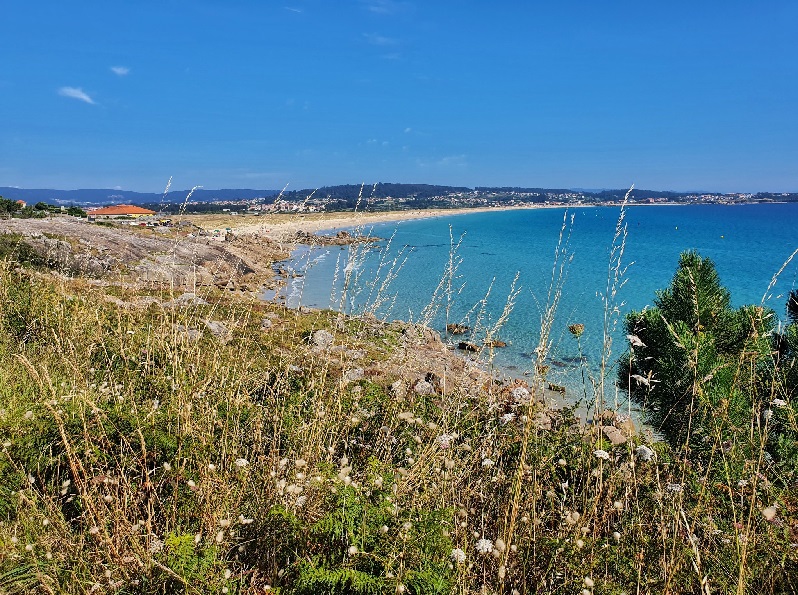
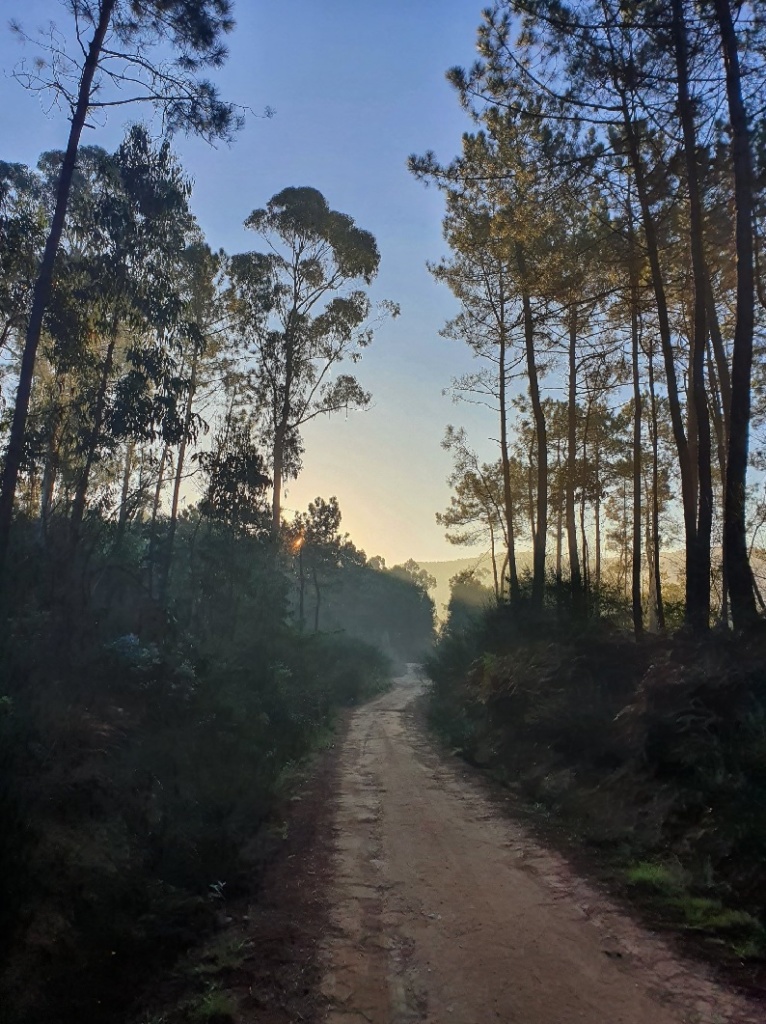

Thanks for reading - and thanks of course to Sally for finding the time to participate in the interview.
If you know of anyone who might like to be featured in this Ethical Marketer series, or you fancy having a chat about some issues that are close to your heart, feel free to get in touch.
If you want to follow Sally on her socials or get in contact with her you can find her information below:
Sally's website
Sally on Twitter
Sally on LinkedIn

